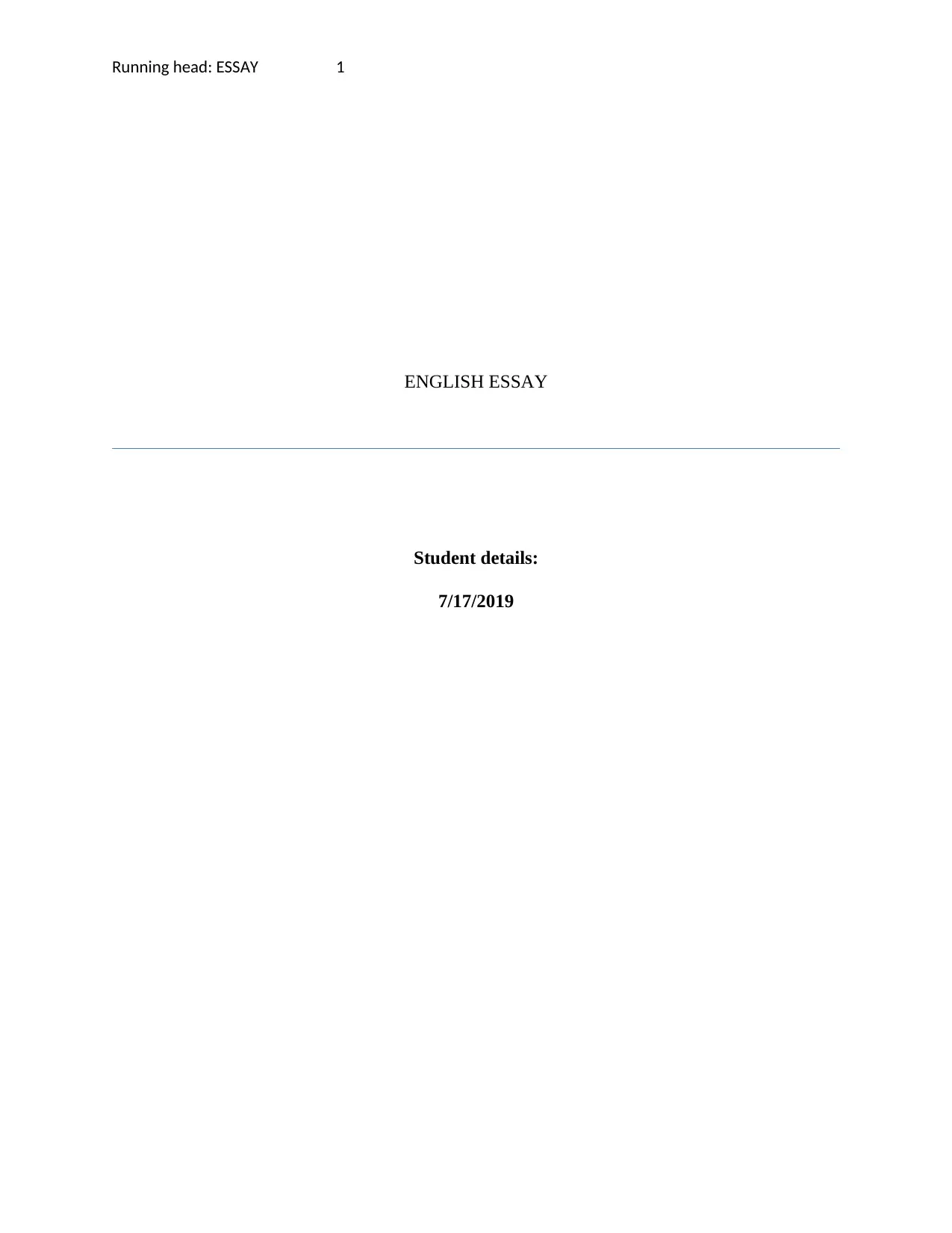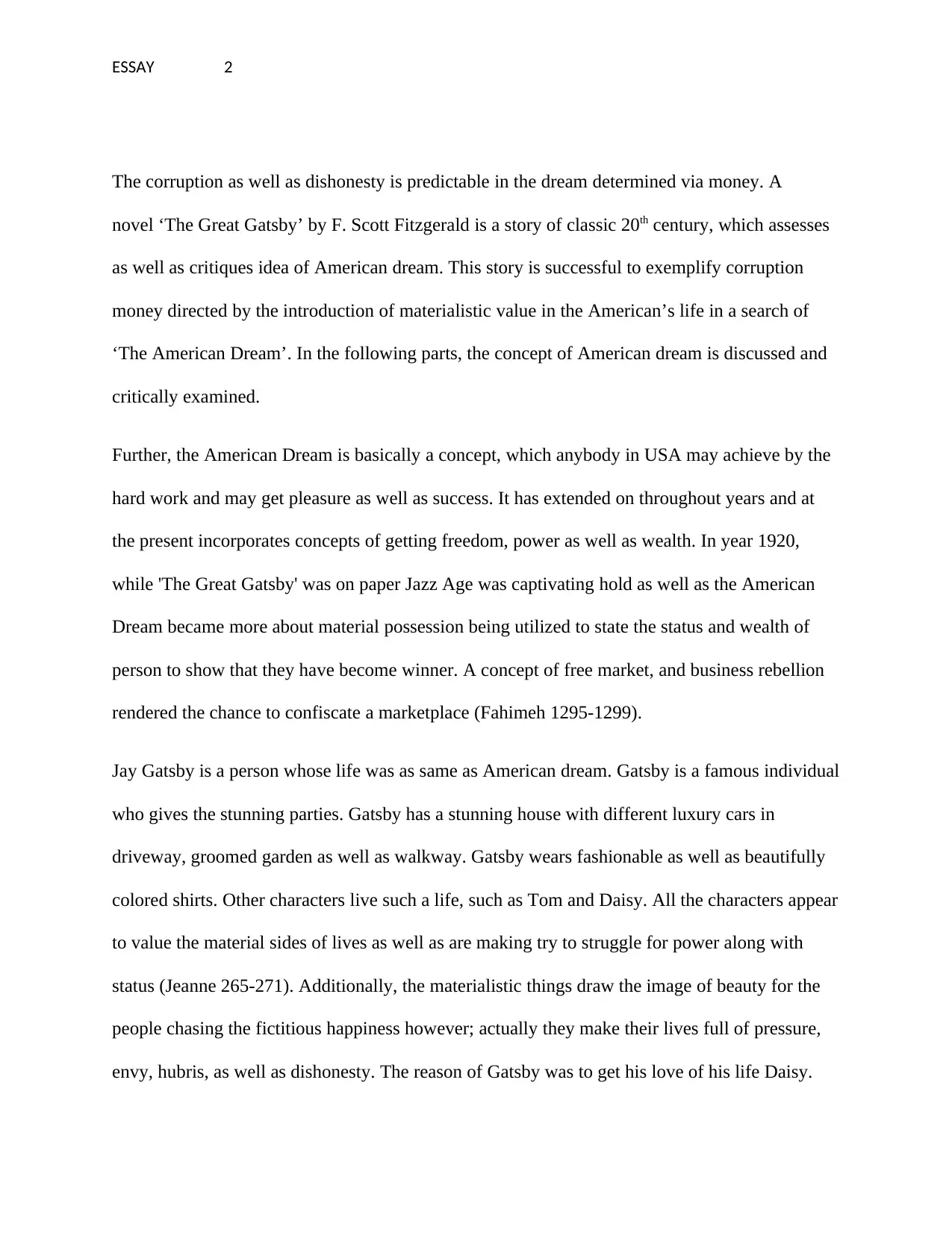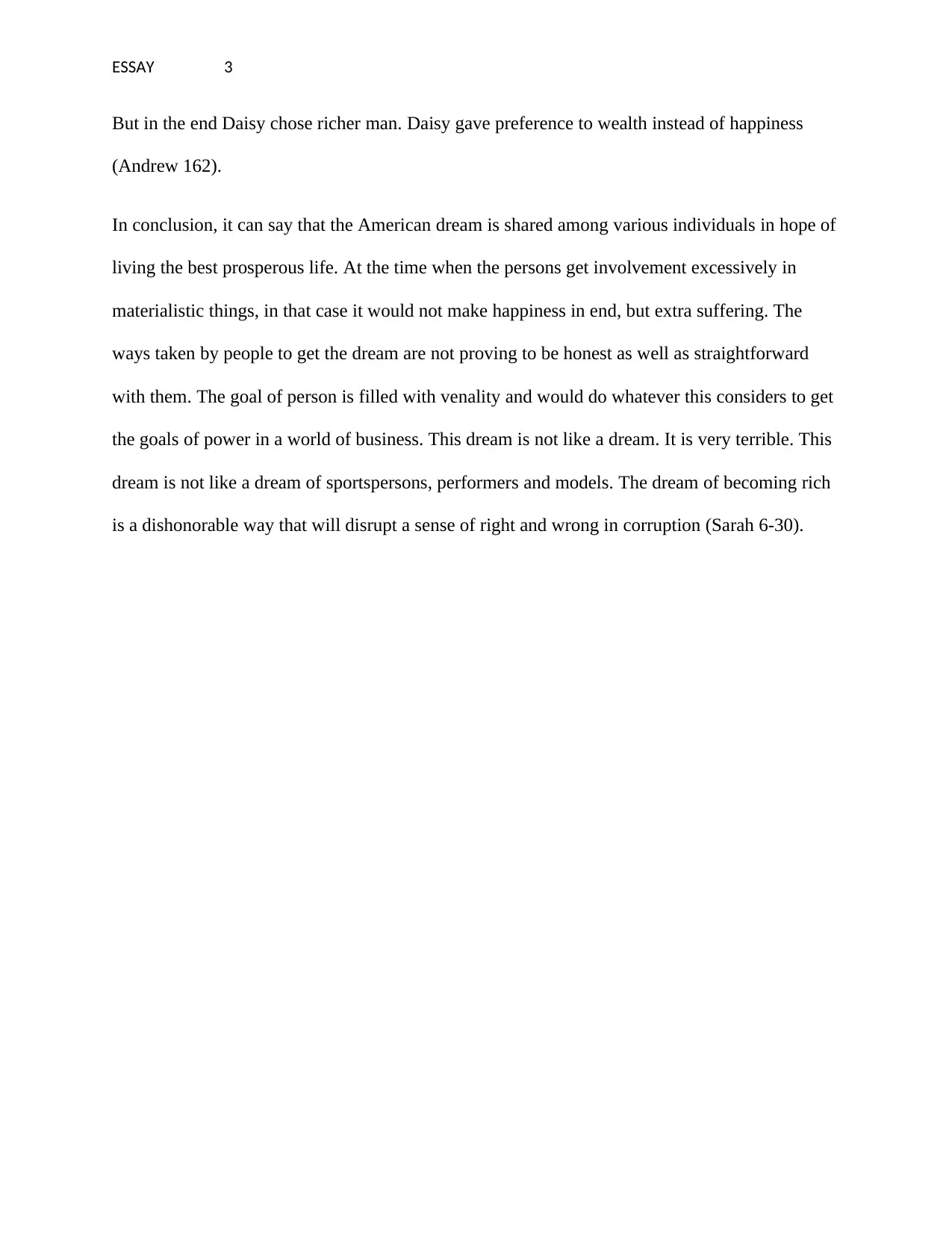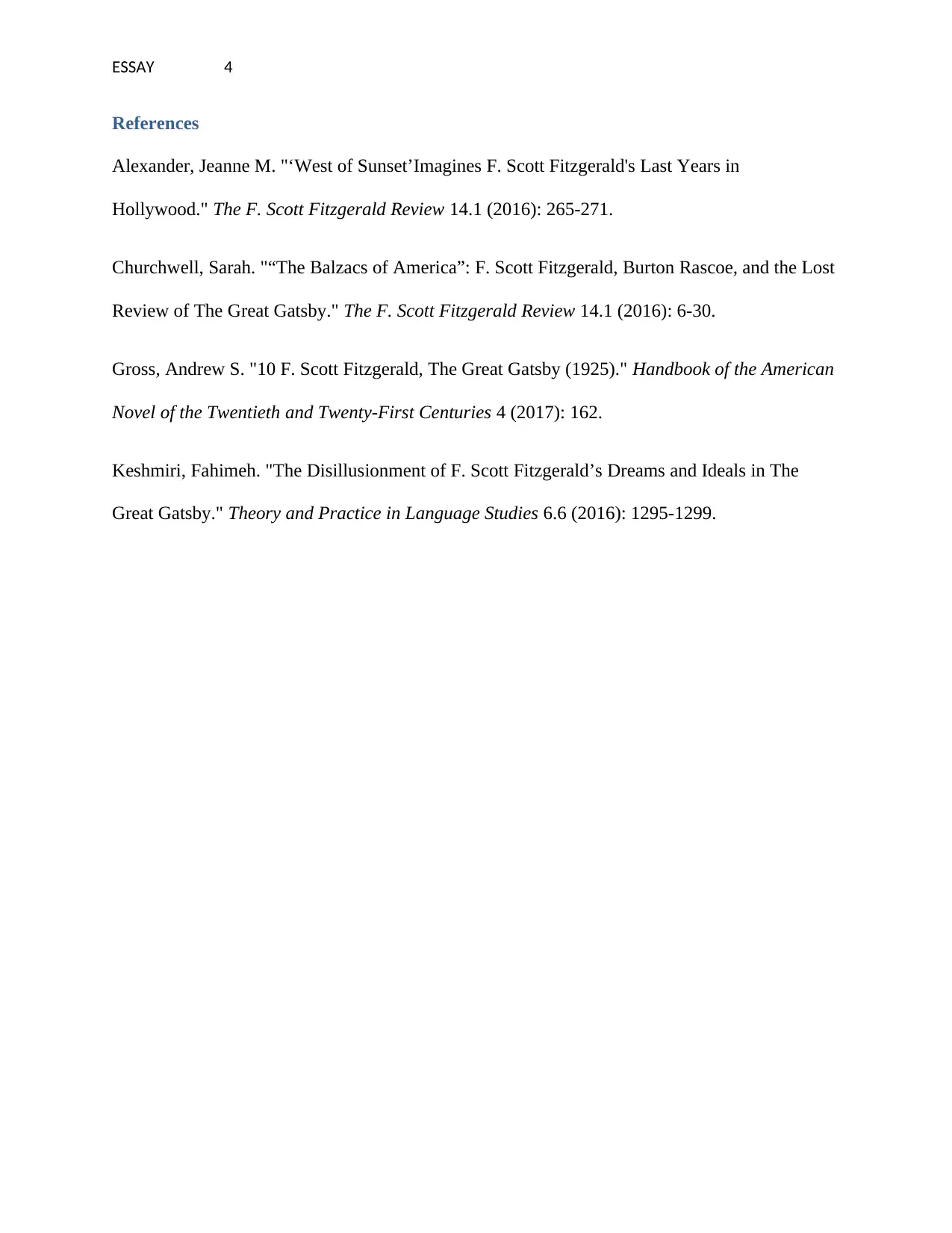Essay on The Great Gatsby: American Dream, Materialism, and Corruption
VerifiedAdded on 2022/11/15
|4
|687
|74
Essay
AI Summary
This essay analyzes the themes of corruption and the American Dream in F. Scott Fitzgerald's novel, The Great Gatsby. It explores how the pursuit of wealth and material possessions corrupts the ideals of the American Dream, as exemplified by characters like Jay Gatsby, Tom, and Daisy. The essay discusses how materialism leads to pressure, envy, and dishonesty, ultimately leading to disillusionment. The author argues that the characters' excessive focus on material wealth and status undermines the true essence of the American Dream, leading to suffering and a distorted sense of right and wrong. Through references to scholarly articles, the essay provides a critical examination of these themes and their implications within the novel's context, concluding that the pursuit of wealth can be a dishonorable path, disrupting moral values.
1 out of 4











![[object Object]](/_next/static/media/star-bottom.7253800d.svg)